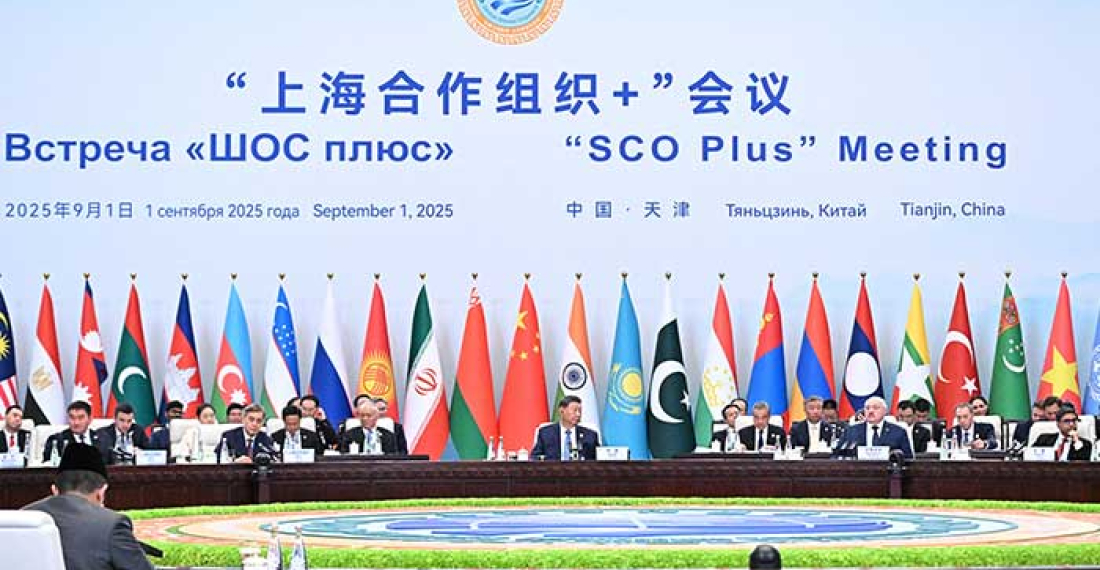The Shanghai Cooperation Organisation (SCO) Summit, held on August 31–September 1, 2025, in Tianjin, China, brought together leaders of the 10 member states, as well as representatives from over 20 countries and 10 international organisations. The summit resulted in the adoption of the Tianjin Declaration and the SCO Development Strategy until 2035, outlining key directions for cooperation and security. Armenia officially announced its intention to join the SCO on July 3, 2025, emphasising its commitment to the organisation’s core principles, territorial integrity, non-use of force, and inviolability of borders. Azerbaijan submitted its application later, in August. Currently, the process of admitting Armenia and Azerbaijan to the SCO is in the preliminary co-ordination stage, involving the attainment of partner status with the prospect of transitioning to full membership in the future.
Joining the SCO requires consensus among all member states, which complicates the process, particularly given tensions between Armenia and Pakistan, as well as between India and Azerbaijan.
In addition to consensus, a candidate country must meet several criteria, including establishing diplomatic relations with all SCO member states. On the sidelines of the SCO Summit, a joint communiqué was signed to formalise diplomatic relations between Armenia and Pakistan, with the document signed by Armenia’s Foreign Minister Ararat Mirzoyan and Pakistan’s Deputy Prime Minister and Foreign Minister Ishaq Dar.
Until this moment, Islamabad had not recognised Armenia’s independence, having actively supported Azerbaijan in military conflicts, including the 44-day war of 2020. Certain circles in Armenia hailed this as a “diplomatic breakthrough,” signalling a reduction in regional tensions and opening new opportunities for dialogue. However, subsequent information leaks suggest that the situation is not entirely straightforward.
Armenian and Azerbaijani media have recently been circulating reports that Pakistan blocked Armenia’s SCO membership. The Armenian side has neither confirmed nor denied this information officially. A statement from Armenia’s Foreign Ministry stated: “At this moment, we will not delve into the details of the process, but I can say that regarding Armenia’s membership, we see a sufficiently constructive approach and mutual understanding. Based on this perception, we will continue working with interested SCO member states to further develop mutually beneficial partnerships with the organisation.”
Meanwhile, a number of Azerbaijani media outlets claim that Pakistan blocked Armenia’s membership in response to India blocking Azerbaijan’s membership. It is worth noting that during a meeting with Pakistan’s leader, Azerbaijan’s President Aliyev reportedly made a provocative statement, given the context of the summit. He congratulated Sharif “on the victory over India” and complained that “India is trying to take revenge on Azerbaijan at international platforms.”
However, it was not only Aliyev who drew media attention at the summit. Nikol Pashinyan found himself at the centre of a controversy involving Alexander Lukashenko. According to sources reported by Vectors, Armenia’s Prime Minister demonstratively avoided shaking hands with the Belarusian leader. Despite informal interactions before the official greeting, Pashinyan’s refusal became a subject of discussion in the media and social networks, sparking public outcry and raising questions about his diplomatic conduct on the international stage.
Pashinyan’s refusal to shake Lukashenko’s hand stems from the latter’s statements supporting Baku during the 2020 war. Yet, Pashinyan was seen smiling and engaging with Aliyev and President Erdoğan of Turkiye, direct participants in the same war, while simultaneously establishing ties with Pakistan, which also actively supported Azerbaijan’s victory. This situation is particularly telling in the context of the SCO’s decision-making mechanism, where membership is approved only by consensus among all participants.







